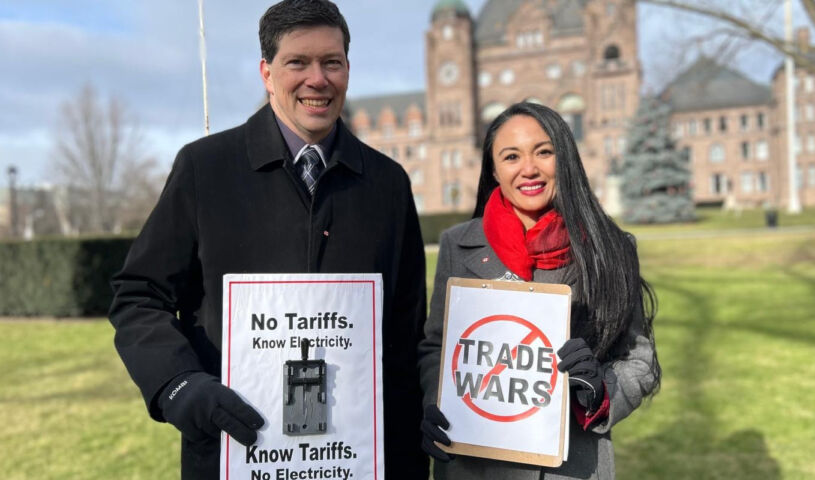National in scope, local in presence: How GPOs support local
 How can public sector agencies balance the need for cost-effective purchasing with the objective of promoting local businesses? The answer involves group purchasing organizations. Photo: Kinetic GPO
How can public sector agencies balance the need for cost-effective purchasing with the objective of promoting local businesses? The answer involves group purchasing organizations. Photo: Kinetic GPO
Supporting small businesses to keep taxpayer dollars within local communities is a priority for many public sector agencies. But how can they balance the need for cost-effective purchasing with the objective of promoting local businesses?
The answer involves group purchasing organizations (GPOs), also often referred to as cooperatives, which offer the best of both worlds: national-scale pricing with local connections.
The concern about buying local isn’t new. According to a Harvard University White Paper, cooperative purchasing had a slow start in the 1990s due to concerns about fairness in the market for local suppliers and smaller players. As a result, leading national and regional cooperatives worked to address those issues by increasing participation among those local and smaller businesses.
Today, GPOs are an integral part of procurement strategies for many public sector organizations, enabling them to take advantage of competitive pricing while still fostering local economic growth. A key component of this success is that national suppliers often have local ties such as physical retail locations or partnerships with local businesses to provide goods and services.
GPOs also actively encourage smaller businesses to bid for projects, even if they provide the product or service in a limited geographic area.
Jonathan Burbee, director of business development for Canada at Gordian and a former executive director with the Province of British Columbia, said this “best of both worlds” solution is good news for procurement officers.
“Public officials are looking to get the most value for taxpayer money, but ‘most value’ can have different meanings in this world,” Burbee said. “They aren’t just buying an item or service – they also are trying to create benefits for residents like raising opportunities for equity-deserving parts of the population and promoting local economic development.”
Sandra Lisi, national director business development Kinetic GPO and former director of purchasing client services for the City of Toronto, agrees. “This is an important issue, especially in smaller municipalities where we are putting food on our neighbors’ tables by supporting local businesses.”
While some skepticism remains around the fairness of GPOs for small businesses, Jean-Marc Nadeau, CEO of SUMA in Regina, Saskatchewan and former city manager of the City of Portage la Prairie, said these concerns can be overcome.
“We need to dispel the misconception that GPOs are detrimental to small businesses,” Nadeau said. “There are countless benefits to local suppliers, contractors, and vendors that come from GPO participation.”
Competitive Pricing through National Contracts
At its core, a GPO provides a valuable mechanism for pooling purchasing power, allowing municipalities and other public sector organizations to access goods and services at scale. Even better, national suppliers often have extensive networks of local brick-and-mortar stores, distributors, dealers, and subcontractors, providing a unique opportunity for public agencies to secure national pricing while still supporting local businesses.
For example, Home Depot has partnered with Kinetic GPO to offer its members discounts at more than 180 retail locations across Canada. This partnership means that a public sector employee in Vancouver can stop by any Home Depot store, identify themselves as part of a public agency, and receive discounts on supplies and materials.
Despite Home Depot being a large national corporation, this arrangement allows municipalities to benefit from local purchases, essentially buying locally while still receiving the economies of scale associated with national procurement.
Another example of how GPOs benefit both national and local economies is in the roofing industry. Kinetic GPO has secured contracts with suppliers like Garland and Tremco, who provide competitive pricing on roofing materials. What’s notable is that these suppliers don’t just deliver materials; they work with local contractors to perform the installation work.
The result is that municipalities can access discounted national pricing, but the work is done by local firms, often those with longstanding ties to the community.
Expanded Business Opportunities
Local businesses can broaden their customer base and streamline the bidding process by partnering with GPOs. Instead of responding to multiple requests for proposals (RFPs) from towns and villages in their local area, those businesses can reply to a single RFP from a GPO, indicating their preferred geographic zone.
“Local businesses may already be working on a larger scale via the Internet; participating with a GPO would be a way to enhance that even more,” Nadeau said.
Burbee agreed, adding, “We develop our contractor pool at Gordian through open solicitation to firms of all sizes in all communities. Over one-third of our contractors in our more established US programs are from smaller companies and in many cases are local. We also encourage GPO members to notify local companies and signal that they will be using these programs when there are solicitations.”
Although they are national, cooperatives like Kinetic GPO recognize the importance of and promote local relationships. Even when purchasing goods from national suppliers, local businesses often serve as the face of the transaction.
This is especially important, notes Lisi, in the Atlantic provinces, where relationships matter deeply. A benefit of using a Kinetic GPO is that members still interact with local distributors, contractors, or service providers.
For instance, companies like Toro, which provides groundskeeping equipment, work with regional distributors such as TurfCare in Ontario and Quebec. These distributors have a deep knowledge of local markets and can tailor their services to the needs of specific communities. By purchasing through a cooperative, municipalities are still supporting local businesses, all while enjoying the financial benefits of larger, national contracts.
Another example is Kinetic GPO’s partnership with Veseys, a family-owned garden business that has grown into a lawn equipment distributor. Through this relationship, Kinetic members get national pricing but work with a regional distributor with deep knowledge of local needs to deliver personalized service.
Dana MacDonald, Kinetic GPO’s business development manager for the Atlantic provinces and former procurement director of the Province of Nova Scotia, said this type of symbiotic relationship between national companies and local businesses is common in her region.
She points to Atlantic-based Beauceron as an example, which works closely with CDW to provide IT security services to Kinetic GPO members. Trane has also seen “great momentum” in the Atlantic provinces with its use of local service providers and representatives.
Local Benefit, Social Impact
An additional layer of impact comes from the social benefits that cooperatives promote. For example, Home Depot, one of Kinetic GPO’s major suppliers, works with more than 120 local charities across Canada and has pledged to donate $125 million to support homeless youth by 2030.
Not only does this partnership provide municipalities with discounted products, but it also allows them to be part of a larger movement of social good, where their procurement dollars help fund initiatives that benefit their community.
Lisi also highlights how GPOs, through their employees who live across Canada, can help amplify the charitable efforts of local businesses. She recalls how, during the pandemic, she personally supported women’s shelters by organizing food drives and raising funds for essential goods through her nonprofit, Sity Society.
“I understand how vital it is to support your local community, especially during difficult times,” Lisi said. “As an extension of Kinetic GPO, employees can be part of a wider social impact, contributing to meaningful causes across the country.”
As membership in GPOs increases, the opportunities for local businesses to participate in large-scale procurement will rise. Burbee notes that for many, GPO programs and Job Order Contracting is a new business model for contractors. As contractors see the success of the program, more will be motivated to join, further enhancing the local benefits of the GPO model.
One of the greatest strengths of GPOs is their flexibility. While they bring national-level savings to municipalities, they also provide a platform for local businesses to compete for work. By working with local contractors, cooperatives like Kinetic GPO are not just driving efficiency – they are actively fostering local economic growth and providing opportunities for small businesses to thrive, which is a win-win for everyone. MW
Chris Penny is the CEO of Kinetic GPO. Penny has spent two decades helping public-sector entities and suppliers manage the often-complicated world of public sector purchasing.



